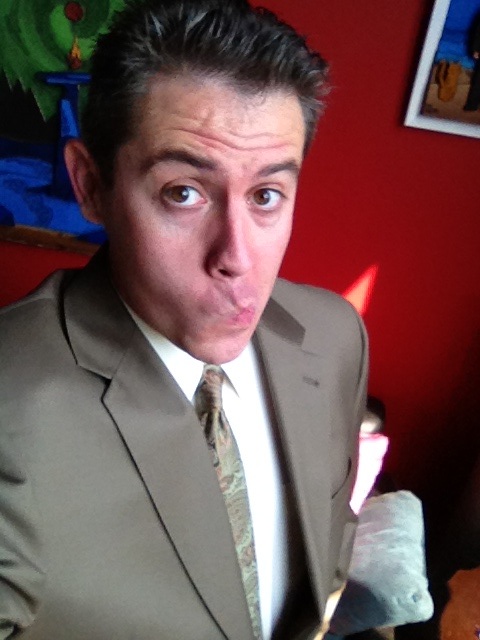Editor’s Note: This is the fifth interview of several we’ll be publishing this month, all with our section editors. Like the rest of the LARB ecosystem, their work depends on the generous support of everyday readers who keep LARB going; we hope you’ll consider giving this month for our winter fund drive.
Meet David Higgins, Speculative Fiction Editor.
What do you do and why?
I teach in the English department at Inver Hills College in St. Paul, Minnesota — a tiny, picturesque little college buried under snow for at least five months of the year. I also write academic non-fiction — mostly scholarly articles related to science fiction and imperialism. This year, I was also a judge for both the Philip K. Dick award (for the best new science fiction novel published in paperback) and the Science Fiction Research Association Pioneer Award (for the best article-length work of SF scholarship). Why do I do these things? I love reading, and I’m fascinated by how science fiction reflects the best and worst aspects of imaginative literature. On one hand, this is a genre which has always been about conquest and empire; it’s filled with fantasies related to colonial expansion and imperial exploitation. On the other hand, it’s also (sometimes simultaneously) a genre which deeply questions what we take for granted about “reality” in fascinating, thoughtful, and and insightful ways. What’s not to love?
What is your favorite place to write/edit outside of your home?
My office on campus, where I’m surrounded by books (and a number of vintage Star Wars and Doctor Who toys).
What is your favorite thing to drink while writing/editing?
Coffee.
What piece did you submit to the LARB Anthology and why?
I submitted Gerry Canavan’s The Warm Equations, which is a double review of Neal Stephenson’s Seveneves and Kim Stanley Robinson’s Aurora. These were two of the most fascinating books of the year, and Canavan considers how they offer alternative visions of humankind’s future in space after the inevitable end of the Earth as we know it. I also submitted Siobhan Carroll’s The Ecological Uncanny, which reviews Jeff VanderMeer’sSouthern Reach Trilogy, which is probably the weirdest and coolest work of speculative fiction I’ve encountered in recent memory — everyone should read all of these books right away!
NASA asks you to select one piece of art/literature/music/film to send into space that will explain our civilization to aliens. What do you chose and why?
If I was in an optimistic mood, I might send the first season of Sense8, which is all about how people from vastly alien social worlds can build meaningful bonds of love and support with one another. If I was feeling more pessimistic, I might send the film Primer, which is a time-travel flick about the fathomless depths of human mistrust. If I just didn’t want the aliens to invade Earth, I might send The Avengers in the hope of scaring them away…
Share a cultural moment/experience you had in 2015 that you really enjoyed.
Mad Max: Fury Road.
Share a cultural moment/experience you had in 2015 that you really didn’t enjoy.
Eric Harris. Walter Scott. Sandra Bland. Samuel DuBose. Freddie Gray. Jamar Clark — It’s hard to keep track of the names. People adopting the stance that “all lives matter” refuse to face the violence inherent to systemic inequality for blacks in America right now.
What is the one question you always wish people would ask in interviews? Now answer it!
Q: What’s your favorite quote?
A: “The best thing for being sad . . . is to learn something. That is the only thing that never fails. You may grow old and trembling in your anatomies, you may lie awake at night listening to the disorder in your veins, you may miss your only love, you may see the world about you devastated by evil lunatics, or know your honour trampled in the sewers of baser minds. There is only one thing for it then – to learn. Learn why the world wags and what wags it. That is the only thing which the mind can never exhaust, never alienate, never be tortured by, never fear or distrust, and never dream of regretting. Learning is the thing for you.” — Merlyn (to young King Arthur), The Once and Future King by T.H. White (183).


